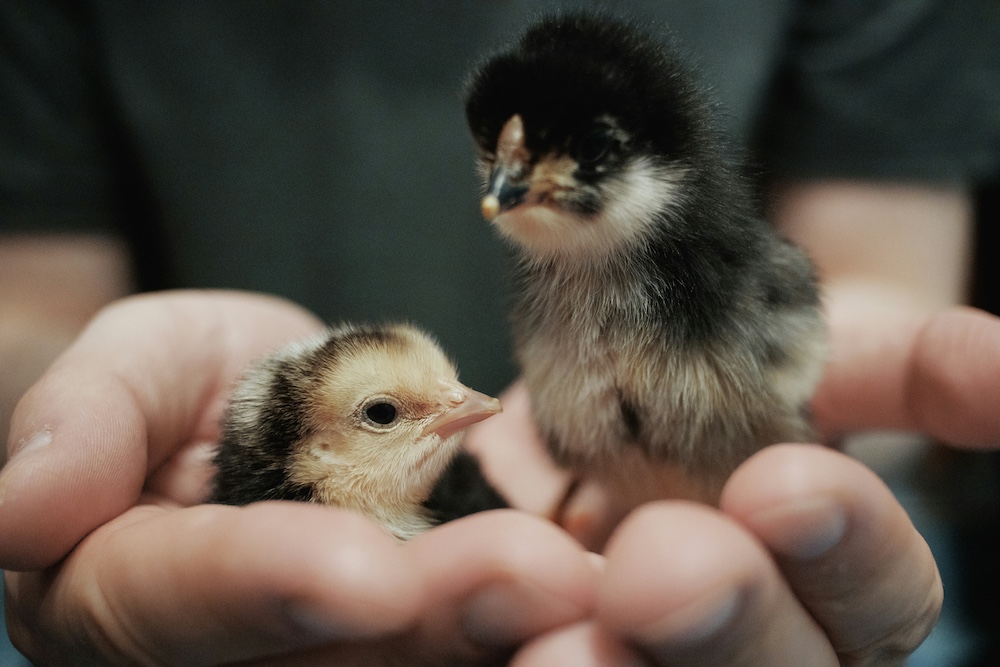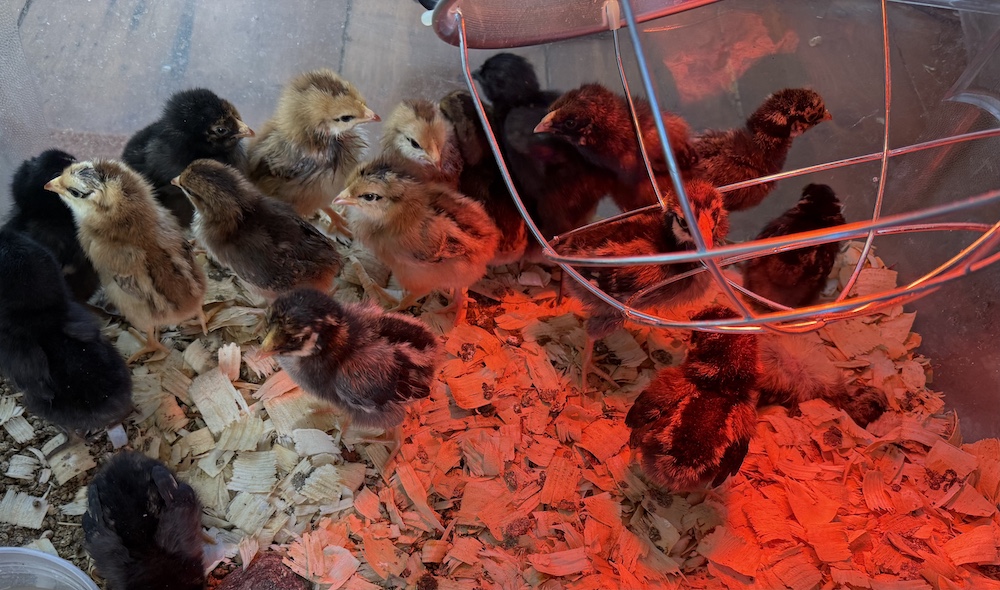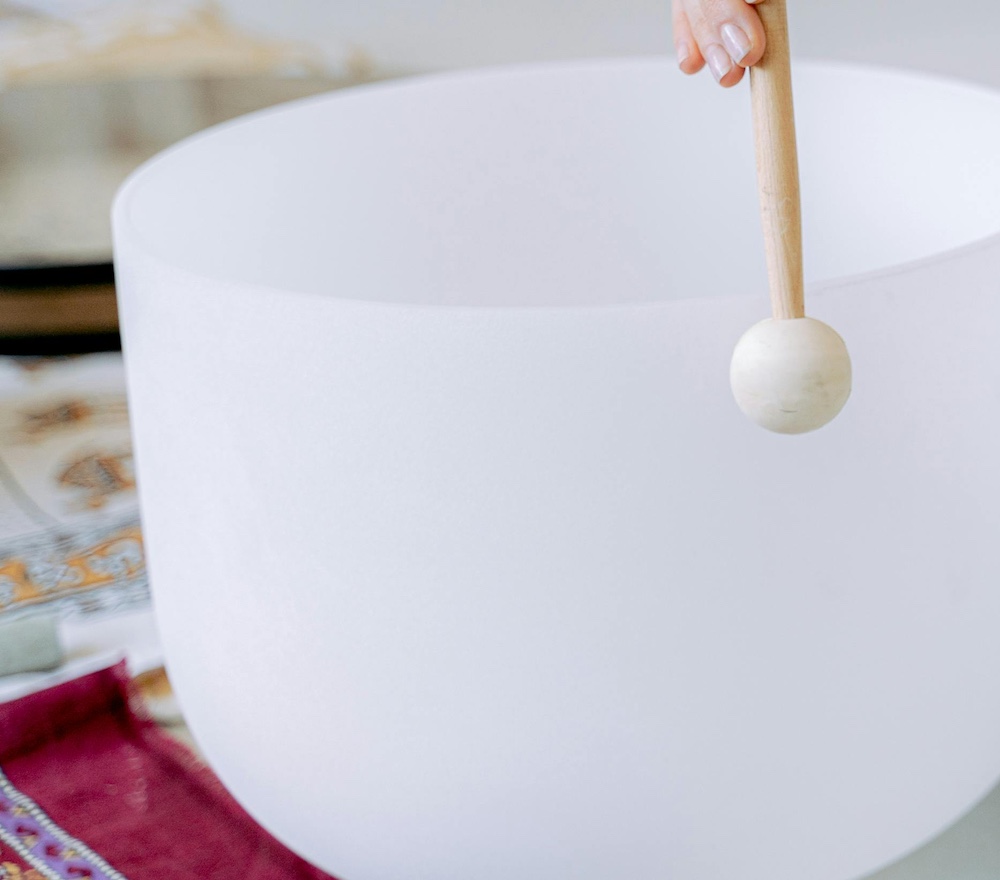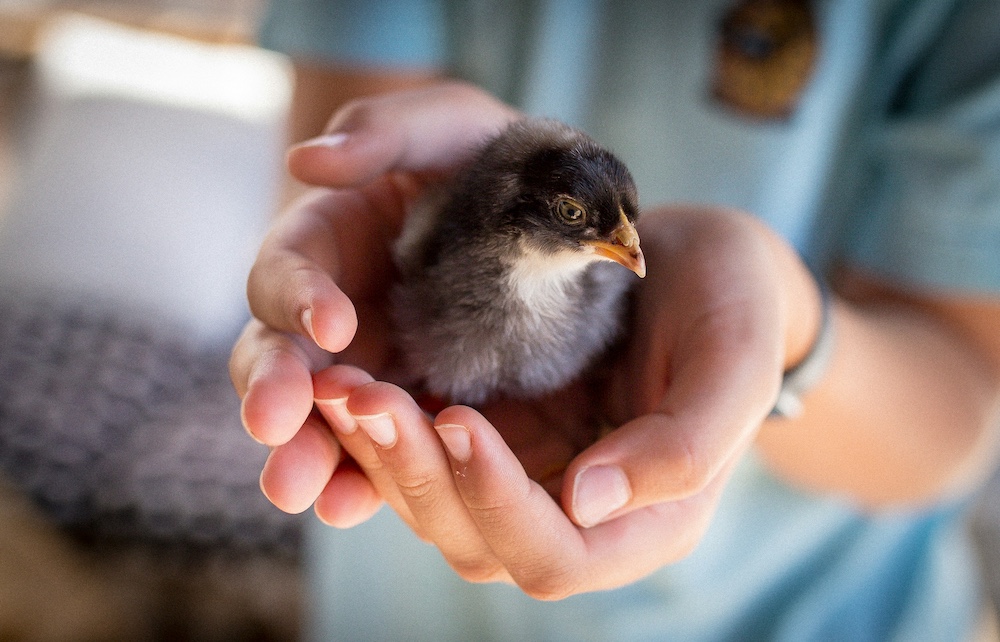
A Chick’s Tale
I went to bed way too late working, but I was relieved to know I could sleep a bit later than usual and have a relaxed morning since I had gotten so much done.
At 4:30 am, I woke up with a jolt as if summoned. I was completely awake.
“I guess I’ll steal some time for meditation in the studio,” I thought, but by the time I reached the bottom of the stairs, I knew something was wrong. The sweet chirping sounds my new chicks had been making when I tucked them in at 2 am had become something that sounded a lot like desperation and alarm. I knew this even before I saw them from a room away, my body vibrating with concern and fear about what I would find.
Mere hours before, they had been happy, fluffy little jubilant balls of life, just as they had in the local Tractor Supply earlier that afternoon. I thought I had taken every precaution: I left them with plenty of food and clean water, as well as fresh wood shavings on the floor of their enclosed space, safe from my cats. I’d even layered blankets over the temporary home– a large plastic storage container with a lid and ample holes for airflow. All this seemed like a more formidable option than their actual coop outside —an uninsulated space that would surely be frigid with these unseasonably cold evenings. It was May, but the temperatures were still dropping significantly and unpredictably. Putting the top on to keep the cats out (who also deserved warm shelter) meant I couldn’t put the chick’s heat lamp on, though. It would have posed a fire risk and been too hot. Before bed, I reminded myself that I would make a more lasting setup in the morning.
Sound is such a powerful medium. I didn’t have to know how to “speak chicken” to realize that, despite all my efforts, something was far from okay.
What could have happened?
While afraid of what I would find, I started to pull off the soft, protective layers…
Inside what I had intended to be a protective and cozy nest lay all 20 baby chicks, legs extended, their tiny bodies shuddering and limp. Now wet and filthy, they huddled or quivered upon one another, piles of other darkened, twisted or flexed forms. Images of birds drenched in oil came to mind: Pol Pot and mass atrocities. I was horrified and wanted to run. They seemed moments away from death and were merely a few days old.
With all my good intentions, I had failed miserably: somehow, the new water dispenser had leaked all over the bottom of their den. Everything and everyone was a matted, dirty and drenched mess of shavings, feathers and soiled water.
What if there was still a chance to save them? Blinking back tears, I ran barefoot into the cold, wet night to retrieve the heat lamp I bought, still in its box in the back of my car. I worked as fast as I could, plugging it in and clipping it to the side of the bin, clawing the cold, wet muck from the floor of the space, throwing the debris in a garbage bag. I removed the water dispenser and spread a thick, dry layer of new shavings.
Then I scooped up the chicks by the handfuls, blowing my warm breath onto them. Their matted feathers were speckled with food and debris and I toned “Nooooooooo” and “I’m sor—ryyyy” onto their fragile, listless forms, tears falling.

Finally, soon, a miraculous and terrifying thing happened – their tiny bodies began to show signs of resilience and determination.
This should have thrilled me, but their reemergence wasn’t gradual. It was as if my efforts ignited a great clamoring for life that felt so desperate that none of them seemed to care who was underfoot, literally. Smaller, weaker ones, slower to resuscitate, were soon trampled; sharp claws stood upon little bodies and eyes, wings bent and crumpled in every direction.
I felt like I couldn’t possibly work fast enough to protect and save them all, though I continued to bring my warm hands closer to the red bulb of the heat lamp. Their frenzied instinct to survive continued to override any inclination toward thoughtfulness, perhaps a scant and hard-to-access trait in any chicken in the most optimal of conditions. It was distressing and overwhelming. Still bleary-eyed, my knees pressing into the hardwood floor, I couldn’t fight against more images of horror flashing in my mind’s eye: slave ships, buffalo hides, bodies at Dachau.
Somehow, despite my good intentions, I too was affecting who lives and how.
Then, I worried that if they did manage to live, they would be marred or blinded because of the way they had clamored on top of one another.
Suddenly, a dormant instinct within, carried through a long line of round-hipped mothers and grandmothers, rose like smoke. They may have “just” been chicks, but as I continued to work, I started humming to soothe them, to soothe myself.
Soon, I opened my throat fully, pouring out my voice, a healing nectar meant to revive and protect. Without a song in particular, I summoned melodies of unsung lullabies, breathing deeper and elongating my exhales, offering love through the tones of sound, just as midwives and death doulas have done for centuries to ease and fortify.
Hunched over the bin awkwardly, my lower back now cramping, my own body cold in the chilled farmhouse, I kept trying to warm them, wondering if even chicks who have near-death experiences are enveloped by light and loved ones. Why not?

Then, I thought of something that might help them. While knowing well the power of sound, I darted to the next room to grab my crystal healing bowl, laughing at the irony of the scene: if there was ever a quintessential Upstate New York hippie moment, this just may have been it. So there I was in the cobalt of morning, singing and “sounding” for the well-being of some tiny feathered creatures, praying, breathing in and out love, in and out…until finally, in fact, sooner than I thought could be possible, an incredible, miraculous thing finally began to happen: 19 of the 20 previously crumpled, contorted bodies started to transform before my eyes.
Eventually, nearly every little creature rose again upon spindly but well-positioned feet. I kept on with my crooning and sound healing as their drunken cartoon bodies began excitedly fluttering around their tiny home again. All this, until finally, finally, unharmed, one pair after another of small feathered wings settled in their rightful places once again, and each chick seemed to be peering gratefully up at me through shiny, curious eyes. Even their bedraggled, matted feathers started to resemble something recognizably chicky, and then I stroked them clean with wet fingers and a cloth.
After everything, only one perished.
If what doesn’t kill us makes us stronger, then indeed, I now have super chicks. And out of all the chicks I have previously nurtured towards hen-and-rooster-hood, I have never before felt more responsible or bonded with my feathered friends.
I will conclude with deep gratitude for my intuition, which has awakened me countless times and guided me towards something important—whether a creative download, spiritual insight, or protective mechanism. We must always follow our instincts to awaken and, especially, lean into life with a capital L.

Write a Comment
You must be logged in to post a comment.



